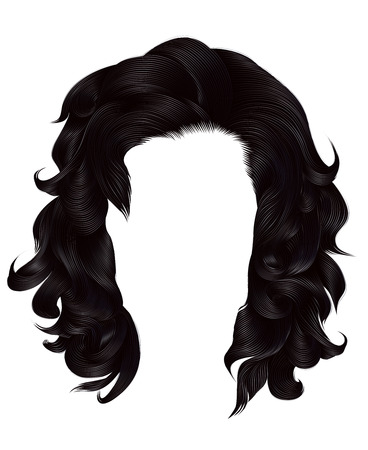Understanding the British Climate and Its Impact on Hair
When it comes to hair care, few factors are as influential as the environment in which you live. The British Isles are renowned for their ever-changing weather conditions, ranging from persistent drizzle and sudden downpours to blustery winds and unpredictable temperature swings—all of which can have a profound effect on hair health, texture, and daily management. Unlike countries with consistently dry or tropical climates, Britain’s blend of high humidity, frequent rainfall, and chilly spells creates unique challenges for both scalp and strands.
The Key Elements of British Weather
| Weather Factor | Typical Frequency | Impact on Hair |
|---|---|---|
| Humidity | High, especially during autumn and winter | Causes frizz, limpness, loss of volume; makes hair more porous |
| Rainfall | Frequent year-round | Leads to flat hair, increased tangling, potential for scalp irritation due to dampness |
| Wind | Common, particularly in coastal and rural areas | Tangles hair, increases dryness, contributes to split ends and breakage |
| Temperature Fluctuations | Regular shifts within a day or week | Makes maintaining consistent moisture levels challenging; can cause scalp sensitivity or dryness |
The Science Behind Weather-Induced Hair Changes
Humidity levels in the UK frequently oscillate between 70% and 90%, especially in cities like London, Manchester, and Glasgow. This constant moisture in the air encourages the hair cuticle—the outer layer—to lift, absorbing water molecules. The result? Frizz-prone locks that resist styling and quickly lose shape. Meanwhile, rain further exacerbates this effect by saturating the hair shaft and weighing down any carefully crafted volume or curls.
The wind is another unsung culprit: while a gentle breeze might feel refreshing, regular gusts can whip strands into knots or rough up the cuticle surface, leading to breakage over time. Add in temperature fluctuations—where mornings start brisk but afternoons turn muggy—and it becomes clear why British hair care routines must be highly adaptable.
Why Your Shampoo & Conditioner Choices Matter in Britain
This distinctive climate means your selection of shampoos and conditioners should directly address hydration balance, frizz control, and environmental protection. Products designed for arid or consistently hot climates may not offer enough moisture-locking or anti-humidity benefits for British users. Instead, look for formulas tailored to repair damage caused by excess moisture or sudden temperature drops—think hydrating agents like glycerin or hyaluronic acid paired with lightweight silicones or plant oils that form protective barriers without heaviness.
2. Hair Science: The Biological Effects of Climate on Scalp and Hair
Understanding how the British climate influences your hair health is fundamental in making smart choices about shampoos and conditioners. Britain’s weather, famously unpredictable, oscillates between damp, chilly winters and sporadically humid or dry summers. Each of these climatic nuances impacts the biological structure of your hair and scalp in unique ways.
Moisture: Humidity vs Dryness
The UK’s high average humidity—especially in coastal and northern regions—can cause the hair shaft to swell, leading to frizz, lack of definition in curls, and increased vulnerability to breakage. Conversely, indoor heating during colder months strips air of moisture, drying out both scalp and strands. The below table outlines typical effects:
| Climate Condition | Impact on Hair Shaft | Impact on Scalp Health |
|---|---|---|
| High Humidity | Swelling, frizz, reduced shine | Increased oiliness, potential for fungal growth |
| Low Humidity/Indoor Heating | Brittleness, static, split ends | Dryness, itchiness, possible flaking |
Seasonal Changes: Adapting to Shifting Conditions
During autumn and winter, the scalp often produces less sebum due to lower temperatures and limited sunlight exposure. This reduction in natural oils makes hair more prone to dryness and requires richer, more hydrating formulations in your cleansing routine. In contrast, spring and summer usually bring an uptick in oil production as temperatures rise and sweat glands become more active.
The Role of Natural Oil Production
Your scalp’s sebaceous glands respond directly to environmental cues: cold weather constricts their activity while warmth stimulates it. Over-washing can strip these essential oils further during already-dry periods; therefore, choosing gentle cleansers with moisturising ingredients is particularly crucial throughout the year.
Summary Table: Seasonal Considerations for British Hair Care
| Season | Main Challenge | Suggested Product Feature |
|---|---|---|
| Winter | Dryness & static | Hydrating formulas with oils or butters |
| Summer | Frizz & excess oil | Sebum-balancing, anti-frizz properties |
This interplay between climate and biology underscores why Britons must tailor their shampoo and conditioner choices not just to their hair type but also to the ever-changing UK weather patterns.

3. Common Hair Concerns in the UK
The unique and often unpredictable British climate gives rise to a host of common hair issues, with specific concerns frequently correlating with regional weather patterns and environmental factors. Understanding these challenges is essential when selecting the right shampoos and conditioners tailored for your needs.
Main Hair Problems Across the UK
Across the country, individuals regularly face four principal hair complaints: frizz, dryness, limpness, and scalp irritation. Each of these concerns can be exacerbated by the region’s characteristic weather conditions—from the damp, drizzly air of western cities to the colder, windier climates further north.
Regional Variations in Hair Issues
| Region | Climate Features | Common Hair Concerns |
|---|---|---|
| South East England | Milder temperatures, lower humidity | Limpness, oiliness |
| Northern England & Scotland | Cooler, windier, variable humidity | Dryness, frizz, scalp irritation |
| Wales & South West England | High rainfall, damp conditions | Frizz, flat hair, scalp sensitivity |
How Climate Affects Hair Concerns
The persistent moisture in areas like Wales and the South West leads to frizz and loss of volume, making anti-frizz serums and volumising formulas highly sought after. In contrast, regions with colder winds such as Scotland see increased dryness and flaky scalps, so nourishing shampoos rich in hydrating agents are more appropriate. Meanwhile, Londoners often contend with limp or oily hair due to milder and less humid conditions—necessitating lightweight cleansing products that restore body without adding heaviness.
Summary Table: Typical British Hair Problems & Contributing Factors
| Hair Problem | Main Climate Contributors |
|---|---|
| Frizz | Damp weather, high humidity, sudden temperature changes |
| Dryness | Cold winds, indoor heating during winter months |
| Limpness | Low humidity, pollution build-up (especially urban areas) |
| Scalp Irritation | Sensitivity to frequent wetting/drying cycles; hard water in certain regions |
This interplay between climate and hair health underlines why Britons often need to adapt their haircare routines according to both season and location—a factor we will delve into further in subsequent sections.
4. How to Choose Shampoos & Conditioners for British Weather
The unpredictable British climate—often damp, occasionally dry, and notoriously changeable—demands a considered approach when selecting haircare products. Whether you’re battling frizz in the drizzle or dryness during a cold snap, choosing the right shampoos and conditioners can help protect your hair’s health and appearance. Below, you’ll find actionable advice tailored to UK weather challenges.
Key Haircare Challenges in the UK
| Weather Condition | Common Hair Issue | Recommended Solution |
|---|---|---|
| High Humidity & Rain | Frizz, limpness | Anti-frizz formulas with humectants and lightweight silicones |
| Cold & Dry Air | Dryness, static, dullness | Moisturising shampoos and conditioners with nourishing oils |
| Windy Days | Tangling, breakage | Smoothing, strengthening ingredients such as keratin and silk proteins |
What Ingredients Should You Look For?
- Glycerin: Helps draw moisture into hair—ideal for combating both humidity and dryness.
- Coconut Oil & Argan Oil: Nourish and seal in moisture, perfect for winter winds and central heating-induced dryness.
- Silicones (e.g., dimethicone): Offer a protective barrier against frizz; opt for water-soluble types for finer hair.
- Sulphate-Free Surfactants: Gentler cleansing agents that don’t strip natural oils—suitable for frequent washing due to rain or pollution.
- Hydrolysed Proteins (wheat/soy/silk): Strengthen hair structure to resist breakage on blustery days.
- Aloe Vera & Panthenol (Vitamin B5): Soothe the scalp and add lightweight hydration without weighing hair down.
Navigating Product Labels: A British Buyer’s Checklist
- Anti-Frizz or Humidity Resistant: Prioritise these if your main concern is battling frizzy hair during muggy spells.
- Deep Moisture or Hydrating: Look out for these terms in winter or if your scalp feels tight from indoor heating.
- Colour Safe or UV Protection: Essential if you colour-treat your hair or spend time outdoors—even with limited sunshine, UV rays can cause fading.
- For Fine Hair vs. For Thick/Curly Hair: Match formulations to your hair type to avoid limpness or inadequate hydration.
- Cruelty-Free & Vegan Symbols: Increasingly valued by UK consumers—check for official logos if ethical sourcing matters to you.
A Sample Routine for British Weather-Resilient Hair
| Step | Product Type | Main Benefit |
|---|---|---|
| Cleansing | Sulphate-free hydrating shampoo with glycerin & coconut oil | Mild cleansing; locks in moisture during cold snaps and rainy spells. |
| Treatment/Conditioning | Rich conditioner containing argan oil & hydrolysed proteins | Nourishes, strengthens against wind-induced breakage; smooths frizz. |
| Finishing Touches | Leave-in serum or cream with silicone & UV filter | Adds lasting protection from humidity, pollution, and sunlight exposure. |
Your Takeaway: Personalise for Performance
No single product suits every season or head of hair. By understanding which ingredients tackle common British weather woes—and knowing what to look out for on labels—you can build a routine that keeps your locks healthy, resilient, and looking their best all year round.
5. Product Analysis: Popular and UK-Focused Haircare Brands
The unique British climate, with its frequent rainfall, variable temperatures, and high humidity, presents a real challenge for maintaining healthy hair. Selecting the right shampoos and conditioners is not just about personal preference—it’s about choosing products formulated to address these very specific environmental factors. In this section, we offer a comparative review of some of the most popular and highly regarded haircare brands available in the UK market, evaluating their effectiveness and special features tailored to British weather conditions.
Key Criteria for Evaluation
- Moisture Retention: Does the product help prevent frizz and dryness caused by damp or cold air?
- Humidity Control: Is it effective at fighting frizz during muggy or wet periods?
- Scalp Care: Does it address scalp health issues exacerbated by central heating or chilly winds?
- Sustainability & Local Sourcing: Are the ingredients responsibly sourced and is the brand environmentally conscious?
Comparative Table: Top UK Haircare Products
| Brand & Product | Main Features | Climate Adaptation | User Feedback (UK) | Sustainability |
|---|---|---|---|---|
| Aussie Miracle Moist Shampoo & Conditioner | Infused with Australian Macadamia Nut Oil for deep hydration; lightweight formula | Highly effective for combating dryness post-rain or after exposure to cold wind | Praises for softness and bounce; works well for fine to medium hair types in humid conditions | Bottle made from recycled plastic; cruelty-free credentials |
| Lush Jason And The Argan Oil Shampoo Bar | Sulphate-free; packed with argan oil and rose absolute; solid bar format ideal for travel | Mild cleansing suitable for frequent washing due to rain; helps restore shine dulled by overcast days | Popular for its eco-friendliness and gentle cleansing, especially among London commuters | Naked packaging (no waste); handmade in the UK using ethically sourced ingredients |
| TRESemmé Keratin Smooth Range | Keratin-infused; smooths cuticles to reduce frizz and enhance shine; affordable pricing | Particularly effective during humid spells typical of British summers; protects against heat styling damage (common due to indoor heating) | Well-reviewed for reducing flyaways and keeping hair manageable between washes | Bottle recyclable; widely available in major supermarkets across the UK |
| Aveda Scalp Solutions Balancing Shampoo & Conditioner | Botanical blend targeting scalp balance; addresses itchiness and flakiness aggravated by winter heating systems | Keeps scalp comfortable during seasonal transitions; nourishes without heaviness—ideal for all hair types facing unpredictable weather swings | Praise for soothing sensitive scalps and restoring natural volume even in damp climates | Cruelty-free, vegan, with a strong focus on renewable energy manufacturing at UK facilities |
| Faith In Nature Coconut Shampoo & Conditioner | Naturally derived ingredients; coconut oil for hydration; free from parabens and SLS/SLES | Helps lock in moisture after exposure to brisk winds or when central heating dries out hair strands; gentle enough for daily use in fluctuating weather patterns | Loved for its mild scent and sustainable ethos, especially among eco-conscious shoppers nationwide | Bottles made from 100% recycled material, vegan-approved, British-made |
Expert Insight: Matching Product to Climate Challenge
The above brands have built a loyal following precisely because they cater to Britain’s ever-changing weather. For example, Aussies rich hydrating formulas are favoured during dry winter months, while Lush’s shampoo bars are perfect for city dwellers frequently caught in unexpected downpours. TRESemmé excels at taming summer humidity-induced frizz—a common complaint from those living near the coast or in urban centres like Manchester or Glasgow. Aveda’s focus on scalp health addresses complaints about irritation from indoor heating systems during colder months. Faith In Nature appeals strongly to consumers who want both eco-friendly packaging and formulas that combat environmental dryness year-round.
The Verdict: Best Choices for British Hair Needs?
No single product suits everyone, but understanding how each brand tackles local climate effects can guide you towards healthier hair all year round. Whether your concern is battling persistent frizz, protecting your scalp from temperature extremes, or simply reducing your environmental footprint, there are excellent UK-specific options available. Our advice? Consider rotating your products seasonally—just as you would your wardrobe—to stay ahead of whatever the British weather throws at you.
6. Best Practices and Hair Care Routines for British Residents
The ever-changing British weather, from damp fogs to brisk winds and the occasional heatwave, means UK residents need a tailored hair care approach. Here are practical tips and routines designed to keep your hair healthy and manageable throughout the year, factoring in both the science of hair and the realities of British climate.
Washing Frequency: Less Is Often More
Overwashing can strip natural oils, especially in the UKs often humid or rainy environment. Most experts recommend washing 2-3 times per week, but this varies with hair type and lifestyle. See below for a quick reference:
| Hair Type | Recommended Washing Frequency |
|---|---|
| Fine/Oily | Every other day |
| Normal | 2-3 times per week |
| Thick/Curly/Dry | Once or twice per week |
Protective Measures Against British Weather
- Humidity Control: Use anti-frizz serums or leave-in conditioners during wet spells to prevent unwanted frizz.
- Wind Defence: Consider tying hair back or using silk scarves on blustery days to reduce tangling and breakage.
- UV Protection: During rare sunny days, use UV-protectant sprays to shield hair from sun damage.
Seasonal Adjustments for Optimal Care
| Season | Main Challenge | Caretaking Tip |
|---|---|---|
| Autumn/Winter | Dryness & static from central heating | Add nourishing masks weekly; avoid hot water when washing |
| Spring/Summer | Humidity & UV exposure | Opt for lightweight, hydrating products; use hats or UV sprays outdoors |
Expert Advice: What Trichologists Recommend
- Avoid harsh sulphates and parabens in shampoos – these can be particularly drying in colder months.
- If you live in a hard water area (common across much of England), consider a clarifying shampoo once a fortnight to remove mineral build-up.
- Treat yourself to regular trims every 6-8 weeks to fend off split ends exacerbated by wind and weather changes.
Your At-Home Routine Checklist
- Select shampoos and conditioners targeted at your specific hair concerns (moisture, volume, colour protection).
- Rinse with cool water to seal the cuticle and lock in shine.
- Towel dry gently – don’t rub vigorously as this causes frizz and breakage.
No matter where you are in the UK, adapting your hair care routine to match the local climate will make all the difference. With a few expert-backed adjustments, you can keep your locks looking their best—rain or shine.


